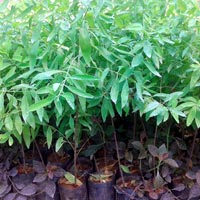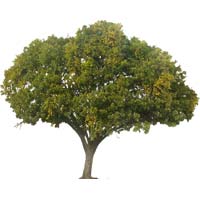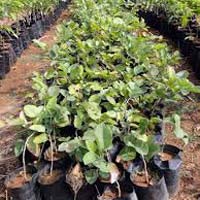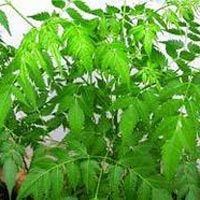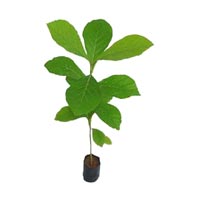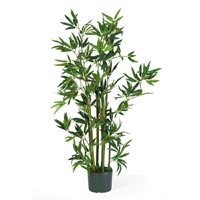Listing ID #4235696
Company Information
Ask for more detail from the seller
Contact SupplierBSIV nursery and farms supplies well germinated and healthy melia dubia plants to the customers. Our plants are germinated in favorable conditions which makes sure that our bio plants will flourish into big trees in a short period of time.
If you do not want to grow this commercial crop from seeds, then purchase them from us and plant them with a suitable method of silver oak plantation.
In the market, there are many private and govt. nurseries are present, from where you can buy the baby melia dubia plants and can grow them in your field. But, purchasing them from a genuine source like BSIV is a smart thing.
You can also get a quotation for melia dubia baby plant through online.
Why Invest in Trees?The majority of the world's wood supply is sourced from native forests, which are not sustainably managed. Even though large areas of plantations have been established in many countries, the rate of planting has been insufficient to meet current and projected future demand. As the present scenario the Timber Demand in India is at very high hence, the need of commercial agro forestry is ever increasing. Melia Dubia is one of the fastest growing species among timber varieties on this planet. Melia Dubia originates from the Meliaceae family and is an indigenous species to India. These trees can be cultivated in all types of soil and requires less management practices.
The total area of industrial plantations suitable for commercial wood production globally is around 94 million hectares, of which over 70% is softwood. Plantation grown wood is estimated to account for 3% of the world's forest resources. Plantation wood supplies 10% of fuel wood and around a third of industrial wood used today. The significance of environmental degradation issues and effects of climate change it is need of the hour to promote agro forestry towards sustainable development. The economic benefits of timber investments will also provide relatively high returns for the low risk they carry.
The Australian Bureau of Agriculture and Resource Economics (ABARE) research report “Global Outlook for Plantations 1999” forecasts that "Plantations are expected to meet 35% of projected global demand for industrial wood by 2000, rising to 44% by 2020 and 46% by 2040. This level of production would require a significant increase in plantation area and the substantial gains possible through plantation productivity in all the regions globally."
Wood is the most preferred material for various end uses ranging from fuel wood to composite products. Thus wood can be replaced by wood itself which is considered an energy efficient material. The emphasis is to shift the source from natural forests to plantation timbers. The choice of species for different end uses is also changing from durable primary conventional timber species to short-rotation, fast-growing plantation species. Large number of wood based industries such as sawn wood and composite panel product manufacturers presently face acute shortage of raw materials and the supply–demand gaps are increasing day by day in alarming proportions.
The industrial demand for wood in Round wood equivalents in India is predicted to increase from 74 million m3 in the year 2005 to 153 million m3 in the year 2020 and side by side it is estimated that more than 50 percent of the total wood supply in the country will come from non-forest sources. There are several options available to bridge the gap such as import of timber which is purely a short-term measure and generating tree resources within the country which could be a better idea as a long-term measure in sustainability terms, as well as a source of carbon stocking which is important from the ecological and environmental viewpoints.
Importance of Melia DubiaMelia Dubia is a promising tree highly suitable for agro forestry or farm forestry with a life cycle of 8 to 12 years is gaining economic importance both in domestic and global markets. It is getting popularized among farmers due to its characteristics such as fast growth, stem straightness without much of branches, less shade effect and for not susceptible to pest and insect attacks. The commercial importance for agro forestry plantations is increasing due to various reasons as explained above and certain tree varieties like Melia Dubia is getting popularized because it fetches assured income with buyback arrangements and requires low maintenance. In addition, these trees also contribute in carbon sequestration and mitigation of climate change impacts.
But considering the general characteristics of the fast growing tree species generally planted by the farmers, technology input is very much essential to make quality products. Through effective research it is possible to broaden the market of Melia Dubia plantation products into specialty products i.e. development of higher grade of plywood like Decorative/Marine/Shuttering grade Plywood, MDF, Particle Board, Laminated Veneer Lumber (LVL), Compreg etc.
Melia Dubia will grow up to 40 feet within two years of planting and has the potential of yielding up to 40 tons of biomass on an average per acre per annum of 10 year old plantation. The minimum cultivation period is six years and it can be allowed up to 8 years for good economic value. In addition to the commercial importance these trees helps in preventing temperature rise and checking gas emission into the atmosphere as the trees are naturally endowed to absorb maximum CO2. Its high calorific value makes it a viable source of feedstock for biomass power plants. In view of the ever increasing timber demand for various commercial purposes and shortage in natural resources the importance for the fast growing Melia Dubia is gaining steadily.
UsesThe wood is used for packing cases, match box sticks, photo frames, pencils ( Nataraj pencil company using the melia dubia wood) mini furniture like stools, benches, wooden tables, interior decoration, window doors, wooden racks & packing industries, musical instruments, tea powder boxes, cigar boxes, building purposes, ceiling planks agricultural implements, splints and kattamarans. In Srilanka, it is employed for outriggers of boats. It is suitable for musical instruments, tea boxes and the most importantly in making plywood as the wood is anti-termite by itself.
The wood of Melia dubia is in high demand in Veneer, Plywood, Pulp, Match stick and Packing case industry. There is a high demand-supply gap in these industries. Each tree of appropriate girth can fetch up to Rs.4000 to 5000/- per tree over a 6-7 year period if sold as veneer.
It is a good secondary timber and the most preferred species for plywood industry. Thus, the species has a ready and assured market due to its multipurpose utilities. The species is also highly adaptable. The species is in high demand by the plywood industries.
The wood is used as dual purpose which has a medicinal value and also used for fodder. It plays a vital role in multi farming of sheep, goat & dairy farming. Melia Dubia has been tested positive for pulpwood and recorded a pulp yield of 50.3%.
The various parts of Melia Dubia (Meliaceae) plant was observed to be used by the local tribes of Nilgiris for various infections. Literature reveals that the bitter tasted fruits of Melia Dubia is considered to be important in colic and skin diseases and also as anthelmintic. It gives positive tests with reagents. Leaves and seeds of this plant were reported to possess two tetranotriterpenoids, compositin and compositolide.


